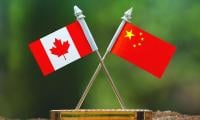Democratising the debate
The Islamabad Security Dialogue has stirred a dynamic debate on the country’s future security outlook. The dialogue hosted by the National Security Division (NSD) involved five leading think tanks which are part of the NSD advisory board, including the Institute for Strategic Studies Research and Analysis (ISSRA), Institute of Strategic Studies (ISSI), Centre for Aerospace & Security Studies (CASS), Institute of Regional Studies (IRS) and the Islamabad Policy Research Institute (IPRI).
The dialogue focused on an array of issues ranging from regional security, economic security and non-traditional security threats such as climate change and food security. The following were the dominant outcomes or the key takeaways from the intellectual debates spanning over two days.
First and foremost, the Islamabad Security Dialogue is a step towards the democratization of ideas into the policymaking process – opening space for the intellectuals to share their perspective on the issues concerning national security. In essence, this is the first step towards bridging the gap between academia and policymaking. The dialogue itself involved input from five think tanks and launched an advisory portal that intends to link more than a hundred think tanks and universities across the country with the NSD to provide space for direct policy input. If implemented in a true spirit, this will ensure an inclusive security policymaking based on ideas gathered from across the country.
Second, the dialogue demonstrated a joint commitment from the civilian and military leadership to expand the concept of national security beyond traditional security. Carefully calibrated messaging from Prime Minister Imran Khan and Chief of Army Staff General Qamar Javed Bajwa put forth the country’s seriousness towards broadening the traditional concept of security and putting human security at the core. For long, human security has remained a forgotten dimension of national security and was not viewed as an integral element in national security policy. The unprecedented focus on broader security issues such as climate change, food security and social development at the Islamabad Security Dialogue from both the civilian and military leadership raises the hope that these issues will also take the centre stage in the soon to be launched first national security policy document.
Third, the dialogue reiterated Islamabad’s shifting focus from geo-politics to geo-economics. Based on the strategy of connectivity, economic and development partnerships and peace within and beyond borders, the discussions placed economic security at the core of future regional outlook. Reiterating its commitment to the Kashmir cause, the civil and military leadership shared their vision of reaping the dividends of regional peace through trade and connectivity.
While the discussions offered hopes and aspirations for a better future through an inclusive policy, it is evident that the path leading to those aspirations is neither stable nor free from challenges. In this regard, the dominant challenge would be sustaining the momentum and transforming ideas into reality. While messaging is important, the real test lies at the implementation phase and following up with concrete proposals towards that end.
There has never been a shortage of good ideas in Pakistan, the challenge has always been the acceptance of those ideas at the official level and then the implementation. The difference this time, however, is that the NSD has demonstrated the commitment to consider those ideas in the policymaking process. Implementation, however, will require a wide-ranging strategy with some concrete short term, medium-term and long-term proposals.
The second major challenge is the pursuit of stability amid tectonic shifts at the global and regional level. While Pakistan has expressed its desire to focus on geo-economics through connectivity, the world particularly the region is already moving in the opposite direction with growing US-China rivalry. Pakistan has expressed its desire to replay the role of a bridge between the US and China, but the evolving situation may not allow that. The confrontational tones during recent interactions between the US and China hinted at a troubled path ahead that may be challenging for countries like Pakistan.
On our part, it is important to closely assess these shifts. Islamabad must realise that the world has changed; offering a solution that worked 50 years ago may not be suitable. The less time we spend on proving its efficacy, the better it would be. Pakistan has to be creative in redefining its role and maintaining a fine balance between the US and China to avoid being caught in this crossfire of the great powers. Even if that means not being at the centre of activity and looking inward instead. This new balancing, however, should not compromise Pakistan’s existing relationship with China as a strategic partner. In the words of Hina Rabbani Khar, the former foreign minister of Pakistan, “it is possible to not be on the wrong side of the one (US) and remain on the right side of the other (China).”
Synchronising internal and external policy priorities would be paramount, so that internal strength radiates at the external level. This will also help to bridge the gap between our national capacity and expected role. One major challenge in this regard would be the divisive national political environment. The whole-of-the-government in policymaking approach will require a political consensus on key security issues. Likewise, lack of capacity of various key institutions will be an added challenge.
Lastly, it is important to institutionalise the process so that it does not remain personality driven. Broadening the concept of security and involving all stakeholders in that process was the need of the hour and just remarkably demonstrated at the dialogue. Regardless of the challenges in the implementation phase, sustaining this process in an institutionalised manner would be essential for this change to take effect.
The writer is senior research fellow at the Centre for
Aerospace & Security Studies.
Twitter: @NoorSitara
-
 China Cuts Anti-dumping Duties On Canadian Oil Imports After Final Trade Decision
China Cuts Anti-dumping Duties On Canadian Oil Imports After Final Trade Decision -
 Prince Harry, Meghan Markle Make Major Change To Strategy To Please Royal Family
Prince Harry, Meghan Markle Make Major Change To Strategy To Please Royal Family -
 Chester Bennington’s Mental Health Story And Lasting Legacy
Chester Bennington’s Mental Health Story And Lasting Legacy -
 John Cusack Gears Up To Give Fans Exciting Surprise On Late-night Television
John Cusack Gears Up To Give Fans Exciting Surprise On Late-night Television -
 Yerin Ha Opens Up About Shocking Diagnosis Post ‘Bridgerton’ Season 4
Yerin Ha Opens Up About Shocking Diagnosis Post ‘Bridgerton’ Season 4 -
 Meghan Markle, Harry Leave King Charles, Prince William Furious With Latest Move
Meghan Markle, Harry Leave King Charles, Prince William Furious With Latest Move -
 NASA Announces New Artemis Moon Mission Aimed At Expanding Astronauts’ Exploration Efforts
NASA Announces New Artemis Moon Mission Aimed At Expanding Astronauts’ Exploration Efforts -
 Everything To Know About Justin Bieber's Facial Paralysis
Everything To Know About Justin Bieber's Facial Paralysis -
 Morgan Stanley Predicts AI To Replace Tasks Not Workers
Morgan Stanley Predicts AI To Replace Tasks Not Workers -
 Anthropic Dario Amodei Calls White House Response ‘retaliatory’ In AI Safety Dispute
Anthropic Dario Amodei Calls White House Response ‘retaliatory’ In AI Safety Dispute -
 Tia Mowry Breaks Silence On Angelina Jolie Asking 'unbelievably' Personal Question: 'Wilder'
Tia Mowry Breaks Silence On Angelina Jolie Asking 'unbelievably' Personal Question: 'Wilder' -
 Savannah Guthrie Speculations 'sadly' Coming True About Mother Nancy
Savannah Guthrie Speculations 'sadly' Coming True About Mother Nancy -
 Trump Administration Warns Of Slow Payouts For Tariff Refunds Amid Intensifying Trade Disputes
Trump Administration Warns Of Slow Payouts For Tariff Refunds Amid Intensifying Trade Disputes -
 Princess Beatrice 'far From Comfortable' After Father Andrew's Arrest
Princess Beatrice 'far From Comfortable' After Father Andrew's Arrest -
 Sarah Ferguson’s Dual Cancer Journey
Sarah Ferguson’s Dual Cancer Journey -
 GTA 6 Security: Rockstar Blocks Leaks Ahead Of Launch
GTA 6 Security: Rockstar Blocks Leaks Ahead Of Launch



